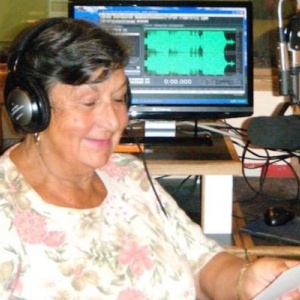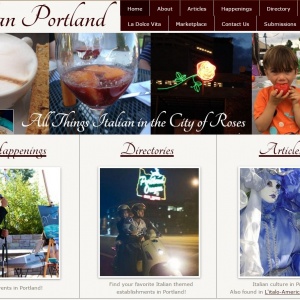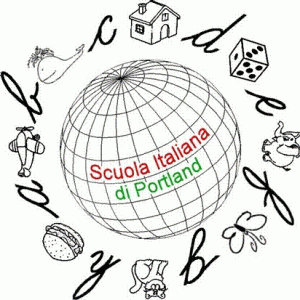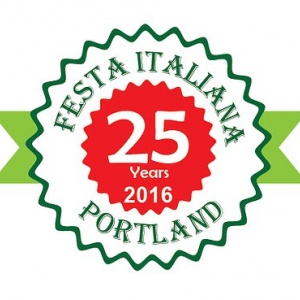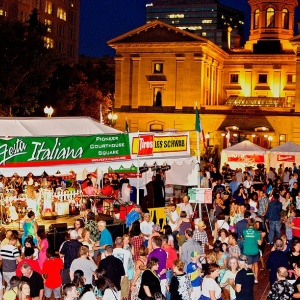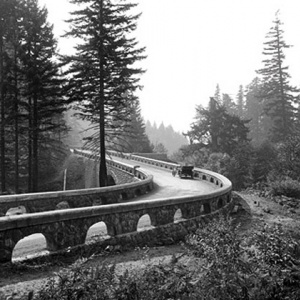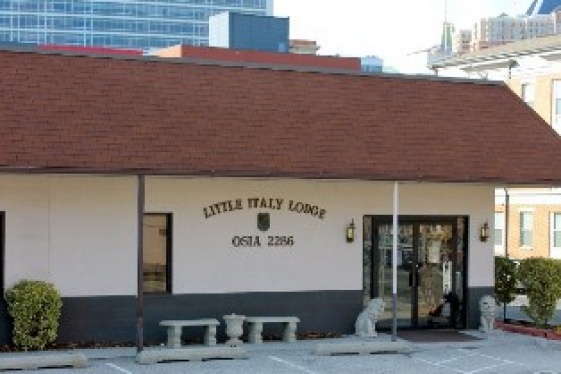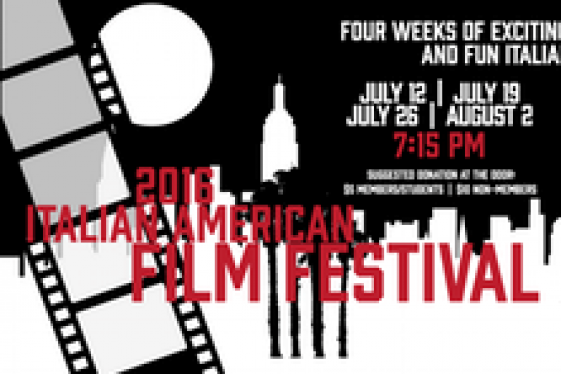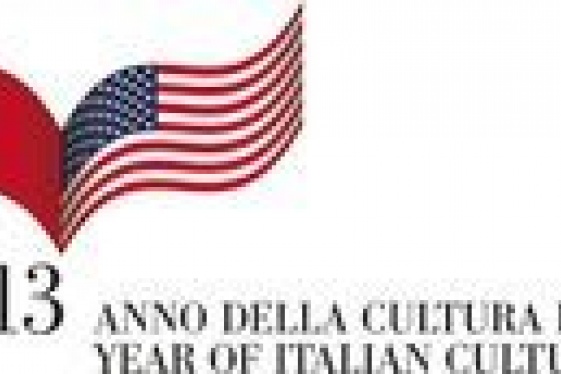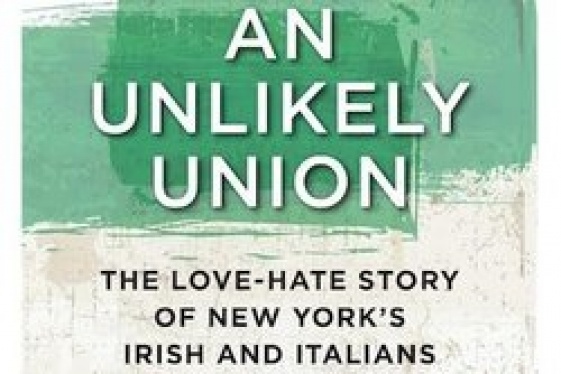
Tonya Russo Hamilton (Founder of www.italianportland.com)
Benvenuti a Portland, Oregon: l'Italia è viva e attiva anche qui

As we're having a great time wandering all over the 50 States in search of Italian stories, our trip today stops by Portland, Oregon: we're far from the motherland, but that doesn't mean that there's no Italy, here in the Beaver State.
On the contrary, we're happy and grateful to meet our friend Tonya Russo Hamilton, who will help us understand why and how even in Oregon you can feel a little bit at home if you're Italian.
Tonya, your father, Antonio Russo, left Italy all by himself at the age of ten, and managed to become a famous wrestling champion. You wrote a book about this: "Wrestling with the Devil: A Story of Sacrifice, Survival, and Triumph, from the Hills of Naples to the Hall of Fame". Is it a typical story of an Italian who pursue his American dream?
"Wrestling with the Devil" is a story that many people can relate to about Italian immigration to the United States. My father, Antonio Russo, is a southern Italian and he was living in poverty in a small village just northeast of Naples when his family decided to send him on a ship by himself to the U.S.
He was only ten years old when he arrived in New York, and he moved in with family members in Brooklyn. These people were struggling financially and it was very difficult for them to add another mouth to feed. Myb father then moved to Portland with one of his uncles, also named Antonio, who moved all the way to Oregon.
Portland is where my father's story unfolds and he learns to wrestle. He found that wrestling gave him focus and was an outlet for him as he assimilated to a new culture without his family. Even though he became a skilled butcher and this was to be his profession, he also continued to wrestle every day at a local gym. A university noticed his skills and because of this he was able to wrestle in college and go on to become a highly successful teacher and a coach.
Is there, or was there, a Little Italy in Portland?
There was a thriving Little Italy in Portland in the 1900s. It was situated in the heart of downtown Portland and was centered around St. Michael's the Archangel Italian Catholic Church. The newly immigrated Italians needed a place to worship and in 1901 they put their resources together and built the church with their own money and their own labor.
Sadly, in 1961, due to an urban renewal movement the city demolished Portland's Little Italy. The only building they left in place was St. Michael's. Today it is the only building still standing in what used to be Portland's Little Italy with its original identity intact. The church is currently undergoing restorations and the local Italian community has come together to raise money and pay tribute to those early Italians with beautiful stained glass windows that will be put into the church. Each window will represent a different region of Italy. Although there is not a physical location for the Italian community in Portland anymore, the Italian community still thrives through many different Italian organizations.
Are there people, or facts that have had or still have a particular importance in describing Italy in Oregon? Or maybe places outside Portland?
Many Italian immigrants began to farm the land in and around Portland because of the fertile ground and wonderful growing conditions we have here. Several of those family farms are still in operation today. There is even a street just outside of Portland called, Cipole Road, named for the onion fields that were once farmed by the local Italians.
A local citizen, Lucia Galizia, who came to Portland from Naples in 1963, has been a driving force behind the Italian community here for nearly forty years. Lucia has been an integral part of Festa Italiana Portland since its inception in the early 1990s and is currently head of the entertainment committee. Another of Lucia's contributions is her long-held position as host of The Italian Hour radio show on KBOO Community Radio. She has been hosting the radio show for twentyseven years.
Your website www.italianportland.com has all the informations about your heritage in your city. We wish there was one like this in every American city. Is it a difficult enterprise?
I started the Italian Portland website and our Facebook page after the publication of my books. After "Wrestling with the Devil" was published I authored an illustrated children's book titled "Tino & the Pomodori". This story celebrates the wonders of gardens, Italy, and family traditions and gives children a glimpse of the beautiful Italian language.
Italian Portland is a way for me to focus on two things that I love: Italian culture and writing. It is not so difficult to maintain but I am also an elementary school teacher so it sometimes gets overwhelming to try and keep up with all of the Italian happenings in the Portland area.
I am always looking for ways to improve the website so that it can be a more useful resource to those in the Italian community.
How about the actual Italian presence in Oregon, nowadays? Are there many Italians? Maybe students?
The Italian presence in Portland is quite strong. There are students as well as teachers, businessmen & women, business owners, artists, and musicians. Portland is known for having some of the best restaurants in the nation, and many of those are Italian restaurants. Italian cuisine goes hand in hand with the bounty of produce, humanely raised meats, and seafood available in the Pacific Northwest.
We have an Italian school - Scuola Italiana di Portland - that was established in 2006 by, Grazia Solazzi. Grazia is a mother of three, an up-and-coming entrepreneur, and food critic. She is currently the acting School Board President at Scuola Italiana and is passionate about promoting Italian language and culture in Portland.
There is also a popular band in Portland called, Mbrascatu. The band was founded by, Andrea Algieri, who hails from Calabria. Andrea was given the nickname, Mbrascatu, by his grandfather as a child in Italy. As the lead singer he sings all of his songs in Italian and also plays the guitar and writes his own lyrics. Mbrascatu has a large and continually growing fan base in Portland.
Portland is also part of a long time sister cities program with Bologna in Emilia Romagna, Italy. Is this still an active program?
Yes. This program was founded in 2003 and is still a very active program. Portland Bologna Sister City Association actively promotes the strong ties between Portland, Oregon and Bologna, Italy. This year will be the eighth year of their Youth Exchange, which is a small program where for two weeks, 16 & 17 year olds from each city travel to one another's cities. They alternate travel each year. One city acts as the host while the other city travels. Each city provides an official itinerary to introduce visitors to their sister city, and host families engage them in informal activities. Starting in 2008, with the arrival of seven Bologna teens in Portland, this summer's trip to Bologna will be Portland's fourth. To date, 128 teens have had the opportunity to connect through the PBSCA Youth Exchange, and many friendships have endured.
Festa Italiana Portland is celebrating its 25 anniversary in 2016. Please tell us something about it.
Festa Italiana Portland is a three day event held every August (this year it start on August 25) in the heart of downtown Portland at Pioneer Courthouse Square. It is put on by the non-profit Festa Italiana Association and features Italian music and entertainment as well as Italian food and desserts. Many of the Italian organizations in town volunteer to help make Festa a wonderful event. The pre-festa activities which occur the week leading up to the event hosts a Catholic mass held in the Italian language, a bocce tournament, and Italian movies. During the event, guests can either sit in the piazza and enjoy the food and music or reserve a private table upstairs in the wine garden. There is dancing and singing and it is truly a fun event for all ages.
What's the story of the Italian emigration to Oregon?
I'm not exactly an expert about this, and so I've asked my friend Giuseppina Ciotti Moore to help me with that: she knows very much about Italian emigration to Oregon.
Giuseppina Ciotti Moore: Around the late XIX century many Italians came here to work on logging camps: in the North West logging was a very big industry, lots of trees in the forests to be cut down for building homes and other purposes of working with wood. The Italians also came to work for the railroads: there were also other jobs, but these two were the ones that attracted the vast majority of Italians in this area.
Around 1910 there were approximately 15,000 Italians. During the depression, President Roosevelt created the WPA (Works Progress Administration): many Italians, above all stonemasons, came then to work on the Columbia River Highway, in particular the stone walls protecting the highway serving as guardrails. Others worked in Mt. Hood, where several Italian stonemasons built Timberline Lodge, a very popular ski resort. A lot of these Italians were from Abruzzo, like my family. Another place they worked at was a place called Vista House, which overlooks the whole valley of the Columbia River.
In the early 1900, the Government granted 640 acres of land in Portland for farming. A lot of Italians accepted the offer, but it was not easy because the land had a lot of trees and boulders that they had to remove before being able to plant vegetables and fruits. They worked hard, and even these days this area is still partially used for farming. The Genovesi were the one who worked more on farming, while the Sicilians were the ones who were successful into the produce business: they would have those large trucks, some of which were horse-drawn, that would go around the neighborhoods to sell fruits and vegetables.
After the First World War, many more Italians arrived. There was a couple, Girolamo Colasuonno and his wife: they were very active in helping the immigrants that were coming in the 20's. They were very generous: Girolamo became a notary and so he continued to help many Italians, even working with the city of Portland in finding jobs for them. Many Italian American businesses were established thanks to Girolamo and his wife: they also built an Italian Federation Hall in Downtown Portland, where the Italian organizations would have their meetings and gather, and with a big ballroom for wedding receptions. In 1932 they even started as Columbus Day celebration with thousands of Italians; and they also established a weekly Italian American newspaper in the 30's called "The Columbus record". Their son Giuseppe Colasuonno is the one who established the Oregon Historical Society with many interesting documented information.
We still have a few Italian organizations from the old days: the "Italian Business Club", the "Tuscan Association", "Amici d'Italia", the "Club Paesano" that started with a lot of Sicilians. They're still very active today.
You may be interested
-
“The Hill” St. Louis’ Little Italy
When the fire hydrants begin to look like Italian flags with green, red and white stripes,...
-
13th Annual Galbani Italian Feast of San Gen...
In September of 2002, some of Los Angeles' most prominent Italian American citizens got to...
-
1st Annual Little Italy Cannoli Tournament
Little Italy San Jose will be hosting a single elimination Cannoli tournament to coincide...
-
2015 scholarship competition
The La Famiglia Scholarship committee is pleased to announce the financial aid competition...
-
2016 Italian American Film Festival
When: Tuesday, July 12, 2016 | Tuesday, July 19, 2016 - Tuesday, July 26, 2016 | Tues...
-
30th Annual Art Holiday Walk, Winter Winter...
Holiday walk hours Friday, 12/5 noon-9pm, Saturday ,12/6 noon-9pm Sunday, 12/7 noon-6pm. S...
-
A Week in Emilia Romagna: An Italian Atmosp...
The Wine Consortium of Romagna, together with Consulate General of Italy in Boston, the Ho...
-
An Unlikely Union: The love-hate story of Ne...
Award-winning author and Brooklynite Paul Moses is back with a historic yet dazzling sto...







